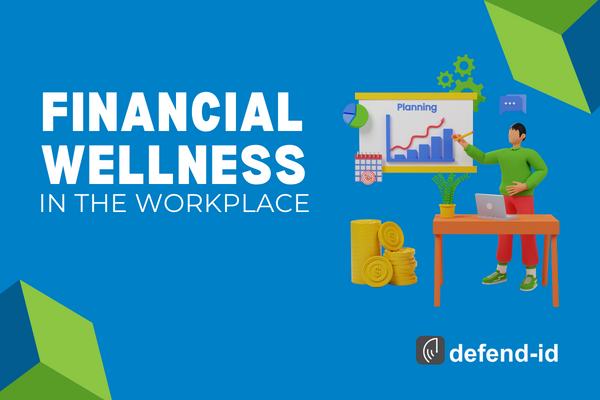April is Financial Literacy Month, a time to focus on the importance of financial education and how it can help individuals and families achieve their financial goals. Financial literacy is the ability to understand and manage one’s money. It includes understanding basic financial concepts such as budgeting, saving, investing, and debt management. Financial literacy is essential for everyone, but it is especially important to advocate for financial wellness in the workplace. Employees will benefit and so will the company!
There are many reasons why financial literacy is important for employees. First, it can help them make better financial decisions. Employees who are financially literate are more likely to save for retirement, pay off debt, and avoid financial problems. Second, financial literacy can help employees improve their job performance. Employees who are financially stable are more likely to be productive and engaged at work. Third, financial literacy can help employees achieve their financial goals. Employees who are financially literate are more likely to be able to buy a home, save for a child’s education, and retire comfortably.
There are many things that employers can do to help their employees improve their financial literacy. One of the most important things is to provide employees with access to financial education resources. Employers can offer financial literacy workshops, seminars, and online resources. Employers can also provide employees with financial counseling services. Financial counseling can help employees develop a budget, save for a goal, and manage debt.
Employers can also help their employees improve their financial literacy by offering financial benefits. Some of the financial benefits that employers can offer include:
- 401(k) plans
- Health savings accounts (HSAs)
- Flexible spending accounts (FSAs)
- Employee assistance programs (EAPs)
- Identity Theft Protection Services
- Credit counseling services
By providing employees with access to financial education resources and financial benefits, employers can help their employees improve their financial literacy and achieve their financial goals.
Here are some additional tips for employers on how to improve their employees’ financial literacy:
- Make financial literacy a priority.
- Provide employees with access to financial education resources.
- Offer financial benefits – like identity theft protection…😉
- Encourage employees to take advantage of financial education opportunities.
- Create a culture of financial wellness in the workplace.
By following these tips, employers can help their employees improve their financial literacy and achieve their financial goals.
Employees who are financially literate are more likely to be productive and engaged at work, and they are also more likely to achieve their financial goals. Financial Literacy for Employees is a topic that is important for both employees and employers. Employers can help their employees improve their financial literacy by providing access to financial education resources and financial benefits. By doing so, employers can create a culture of financial wellness in the workplace and help their employees achieve their financial goals.
Related articles:
- Why Provide Identity Theft Protection as an Employee Benefit?
- 5 Reasons Employers Offer Identity Protection
- Agents Offer Identity Theft Protection?
